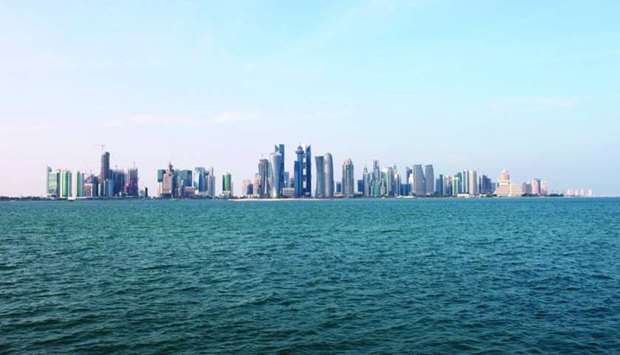Qatar’s public spending will increase this year facilitated by higher revenues from oil and gas, researcher Oxford Economics has said in an overview.
The researcher noted that Qatar has based its 2022 budget on a conservative assumption of a $55/ barrel oil price, well below the $71 average that Oxford Economics forecasts for next year.
On this basis, the authorities project a slight deficit of QR8.3bn, or roughly 1% of GDP next year.
“The budget projection shows another year of deficit but, given markedly higher oil and gas prices, we forecast a surplus at almost 6% of GDP in 2022 even as spending rises. Recent figures suggest a modest surplus in the first nine months of 2021. Qatar posted a fiscal deficit of 2.1% of GDP in 2020, the lowest in the GCC,” Oxford Economics noted.
According to Oxford Economics local banks have been resilient and are well-capitalised, profitable and with low, albeit rising, levels of non-performing loans. Their exposure to construction and real estate points to worsening asset quality once loan-deferral facility expires.
Moreover, their reliance on foreign funding has risen, reflected in Fitch placing some bank ratings on negative watch. The central bank injected liquidity into the banking system as part of its QR75bn support package to offset funding pressure, later extended by a year.
Oxford Economics said the country’s non-oil sector grew by an average of 2.3% pa in 2018-19 but contracted by 4.7% in 2020, weaker than expected.
Data such as the November PMI, which at 63.1 was the highest on record, suggest the recovery gained momentum as restrictions eased, with non-oil GDP seen growing by 3.2% this year. Activity is still benefiting from improved confidence and spending as well as outlays on infrastructure projects ahead of the 2022 FIFA World Cup.
According to Oxford Economics, Qatar’s medium-term risks look balanced.
Covid-19 infections may rise again, with strict containment measures reinstated and slowing the recovery process.
Normalisation of relations with the rest of the GCC and Egypt could provide a more meaningful boost to medium-term growth than currently expected, Oxford Economics said.
Qatar has passed various reforms to attract foreign capital, including a proposal to allow full foreign ownership of listed companies, Oxford Economics said.
The researcher noted that Qatar has based its 2022 budget on a conservative assumption of a $55/ barrel oil price, well below the $71 average that Oxford Economics forecasts for next year.
On this basis, the authorities project a slight deficit of QR8.3bn, or roughly 1% of GDP next year.
“The budget projection shows another year of deficit but, given markedly higher oil and gas prices, we forecast a surplus at almost 6% of GDP in 2022 even as spending rises. Recent figures suggest a modest surplus in the first nine months of 2021. Qatar posted a fiscal deficit of 2.1% of GDP in 2020, the lowest in the GCC,” Oxford Economics noted.
According to Oxford Economics local banks have been resilient and are well-capitalised, profitable and with low, albeit rising, levels of non-performing loans. Their exposure to construction and real estate points to worsening asset quality once loan-deferral facility expires.
Moreover, their reliance on foreign funding has risen, reflected in Fitch placing some bank ratings on negative watch. The central bank injected liquidity into the banking system as part of its QR75bn support package to offset funding pressure, later extended by a year.
Oxford Economics said the country’s non-oil sector grew by an average of 2.3% pa in 2018-19 but contracted by 4.7% in 2020, weaker than expected.
Data such as the November PMI, which at 63.1 was the highest on record, suggest the recovery gained momentum as restrictions eased, with non-oil GDP seen growing by 3.2% this year. Activity is still benefiting from improved confidence and spending as well as outlays on infrastructure projects ahead of the 2022 FIFA World Cup.
According to Oxford Economics, Qatar’s medium-term risks look balanced.
Covid-19 infections may rise again, with strict containment measures reinstated and slowing the recovery process.
Normalisation of relations with the rest of the GCC and Egypt could provide a more meaningful boost to medium-term growth than currently expected, Oxford Economics said.
Qatar has passed various reforms to attract foreign capital, including a proposal to allow full foreign ownership of listed companies, Oxford Economics said.


